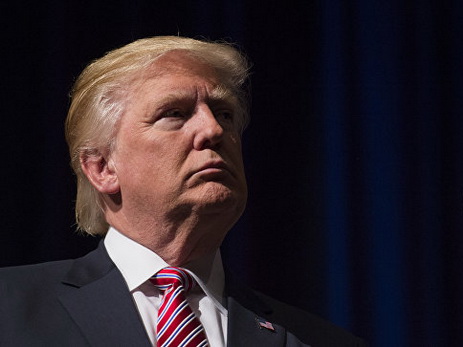Washington Times: How Trump can fund his defense buildup

The president should cancel aid to dysfunctional foreign governments
By Jacob Kamaras
U.S. foreign policy, said President Trump in his address to Congress last week, “calls for a direct, robust and meaningful engagement with the world.” America’s allies, he said, “will find that America is once again ready to lead.”
Mr. Trump’s primary vehicle for restoring America’s global power and prestige following eight years of Barack Obama’s abdication doctrine — “leading from behind,” as one of the former president’s own advisers described his boss’ Libya policy in a 2011 New Yorker article — will be to increase military spending by a proposed $54 billion, or 10 percent.
“To keep America safe we must provide the men and women of the United States military with the tools they need to prevent war and — if they must — to fight and to win,” Mr. Trump said. “I am sending the Congress a budget that rebuilds the military, eliminates the defense sequester, and calls for one of the largest increases in national defense spending in American history.”
Mr. Trump’s intentions are noble — who doesn’t want a “robust” and “meaningful” foreign policy? But the devil is in the details, as billions in extra defense spending will require sharp cuts elsewhere. It all starts with a wiser allocation of foreign aid. To borrow one of Mr. Trump’s own catchphrases, the president needs to “drain the swamp” when it comes to America’s spending abroad.
Avoiding foreign aid blunders means defunding “governments” who sponsor or incite terrorism — such as the Palestinian Authority and its well-documented media incitement, and its disbursement of monetary rewards to terrorists and their families. The Taylor Force Act, which was reintroduced by three senators this week, appropriately conditions the $400 million in annual U.S. aid to the Palestinians on their ability to end support for terrorism.
Avoiding foreign aid blunders means defunding regions that have no functioning governments, such as the annual $2 million from USAID for Nagorno-Karabakh, the Armenian-occupied territory that is internationally recognized as part of Azerbaijan.
The State Department already acknowledges on its website that the United States “does not recognize Nagorno-Karabakh as an independent country, and its leadership is not recognized internationally or by the United States. The United States supports the territorial integrity of Azerbaijan and holds that the future status of Nagorno-Karabakh is a matter of negotiation between the parties.”
Why not back up those words with action and defund an unrecognized territory? While we’re at it, should the $24 million in U.S. aid to Nagorno-Karabakh’s occupier, Armenia, suffer no consequences, while the victim of the occupation, Azerbaijan, receives about half that sum in annual American aid?














